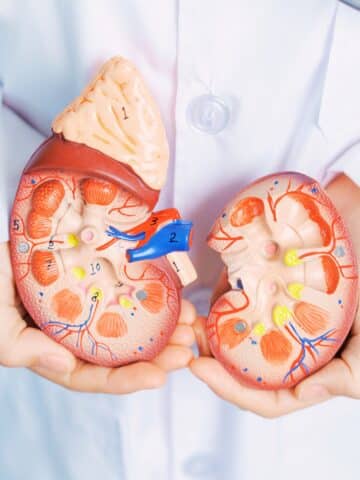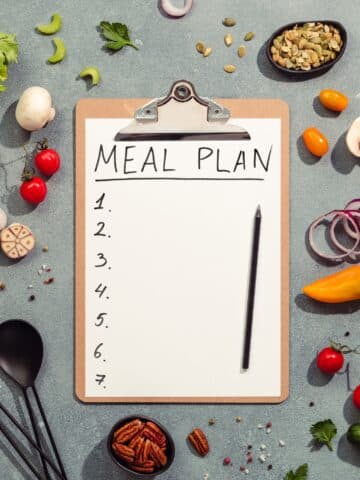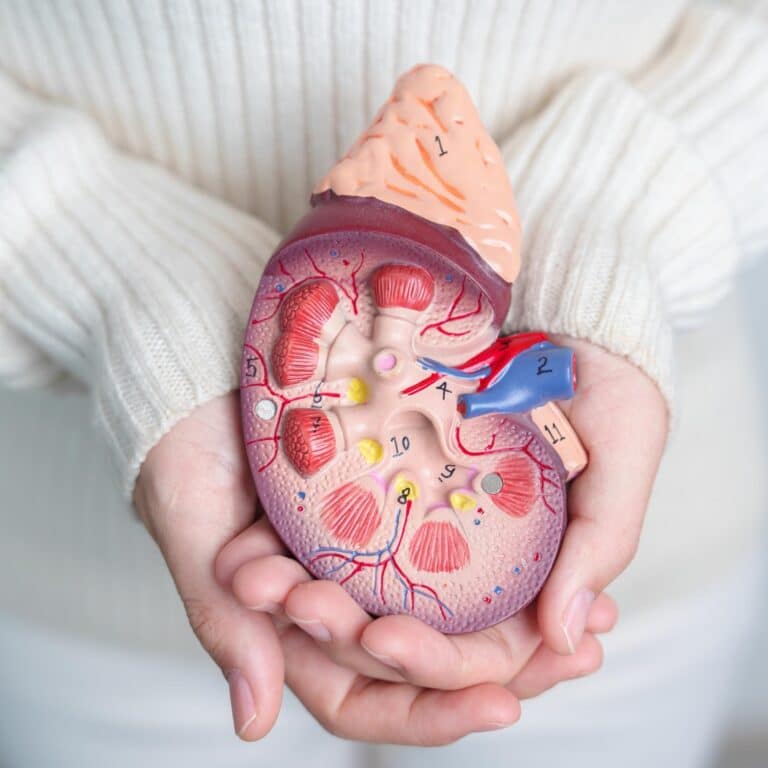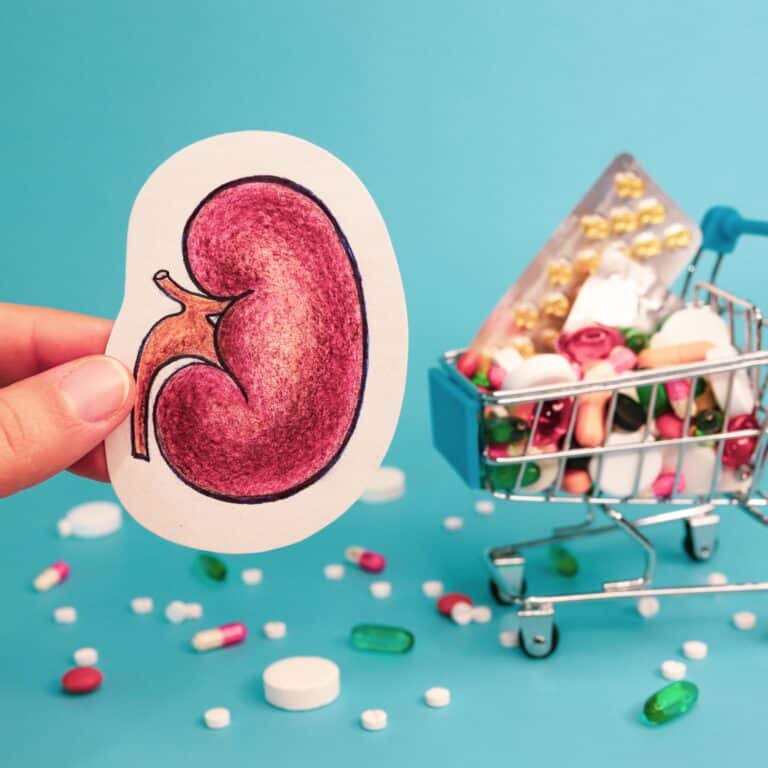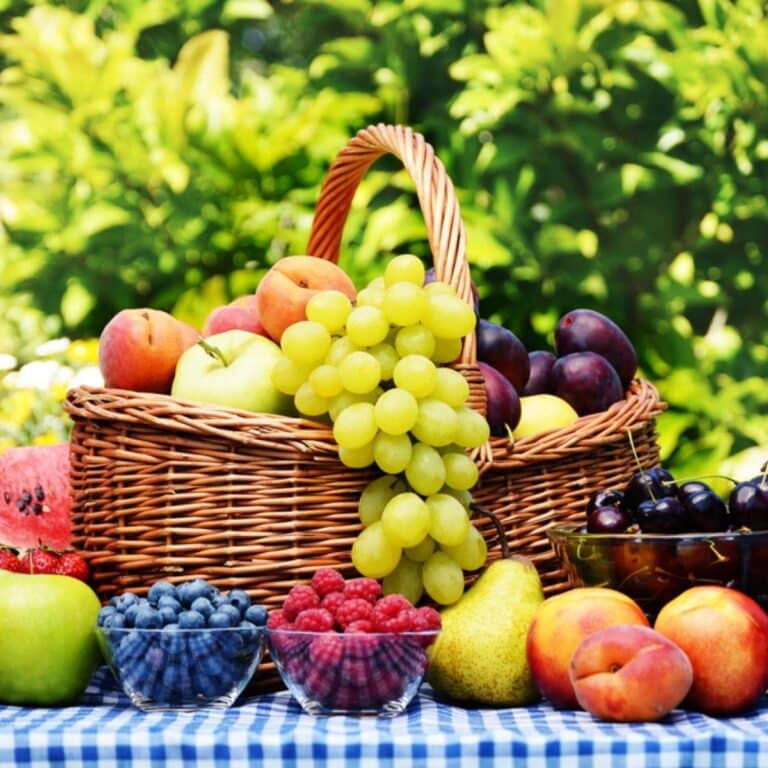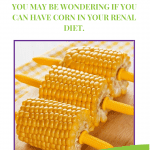Eating Corn When You Have Kidney Disease
When you have kidney disease, it can be difficult to know what foods you should and shouldn’t eat. Corn is a common food item that many people enjoy, but if you suffer from kidney disease, consuming corn can pose some risks. Make sure you know the signs and symptoms of kidney failure.
In this article, we will explore the potential consequences of eating corn when suffering from kidney disease and how you can best manage your diet in order to ensure good health.
As a Registered Dietitian with over 25 years of experience in renal nutrition, I help individuals with Chronic Kidney Disease (CKD) navigate food choices, including whether corn is a safe option. My recommendations are based on evidence-based guidelines to ensure that CKD patients can enjoy a balanced diet while managing their potassium, phosphorus, and sodium intake. At Renal Diet HQ, I provide expert, research-backed advice to make kidney-friendly eating both simple and enjoyable.
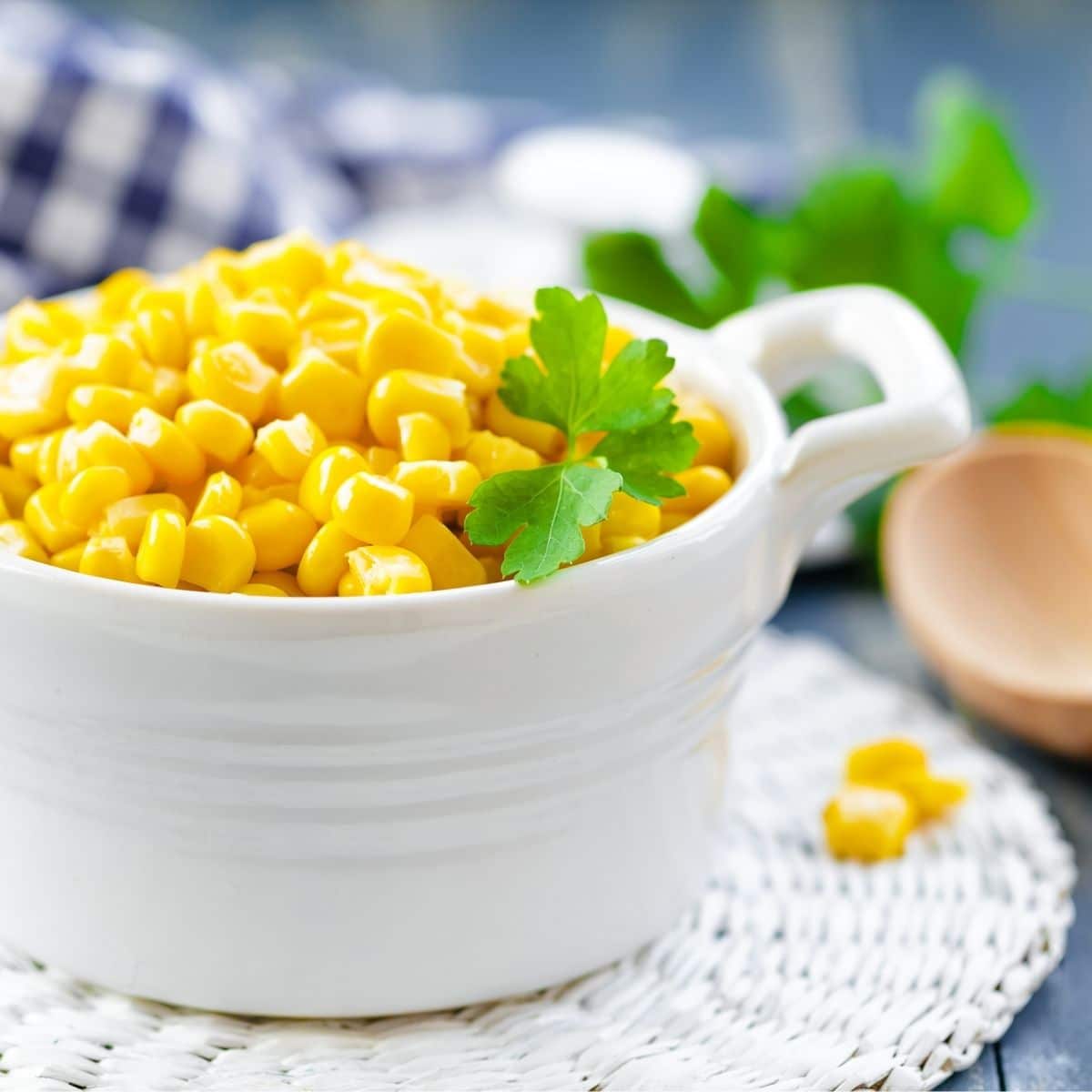
You may love frozen corn, canned corn, or corn on the cob (aka an ear of corn) and we are going to talk about all of them today, including hominy.
When it comes to managing your diet with chronic illnesses such as kidney disease, understanding which foods are beneficial and harmful is essential for maintaining optimal health and eating kidney friendly meals.
We understand just how important it is for those living with chronic illnesses like kidney disease to make informed decisions about their diets, so they can continue living healthy lives despite their diagnosis.
That's why in this article we'll cover the possible risks associated with eating corn while having kidney disease along with helpful tips on how to properly balance your diet.
Jump to:
- Nutrient Content Of Corn
- Is Corn High In Phosphorus?
- Sweet Corn And Kidney Patients
- Is Corn Good For Kidney Patients?
- Hominy And Kidney Disease
- Benefits Of Eating Corn For CKD Patients
- Considerations When Eating Corn With Kidney Disease
- Is Corn High In Potassium?
- Is Corn High In Sodium?
- Dietary Fiber Intake And Eating Corn With Kidney Disease
- How Much Carbohydrates Are In Corn?
- Frequently Asked Questions
- You Can Eat Corn With Kidney Disease
For More Recipes and Ideas --->> Get Your Free Meals and Recipes That Are Perfect for Pre-Dialysis Diets, Pre-Dialysis with Diabetes, or Dialysis Diets.
Nutrient Content Of Corn
Have you ever wondered what nutrients are in corn? Is it high in phosphorus, or low? Corn is a nutrient-rich food that can provide many health benefits when eaten regularly.
It contains carbohydrates and dietary fiber which can help regulate digestion. Corn has vitamins A, B6, and C as well as minerals like magnesium, potassium, and zinc - all of which have been linked to improved heart health. But how does it compare when it comes to phosphorus content?
Sweetcorn and hominy both have a lot of nutritional value, but they vary slightly in their content. Sweetcorn contains 86 calories per 100g, 2.1g of protein, 15.6g of carbohydrates, 2 mg of sodium,37 mg of phosphorus, and 201 mg of potassium.
Hominy has slightly fewer calories at 72 per 100g, 2.2g of protein, 14.2g of carbohydrates, 1 mg of sodium, 38 mg of phosphorus, and 198 mg of potassium.
Both are excellent sources of vitamins and minerals, although sweetcorn has slightly more calories, protein, and carbohydrates than hominy. Both are low in sodium and moderate in phosphorus and potassium.
Interestingly enough, while most grains are higher in phosphorus than other micronutrients, corn is relatively low in this mineral.
In fact, 1 cup (164 grams) of cooked yellow corn provides just 39 milligrams of phosphorus — far less than the daily recommendation for adults, which ranges from 700 to 1250 milligrams per day depending on age and sex.
As such, eating moderate amounts of corn may be beneficial for those with kidney disease who need to limit their intake of vegetables low in phosphorus and potassium.
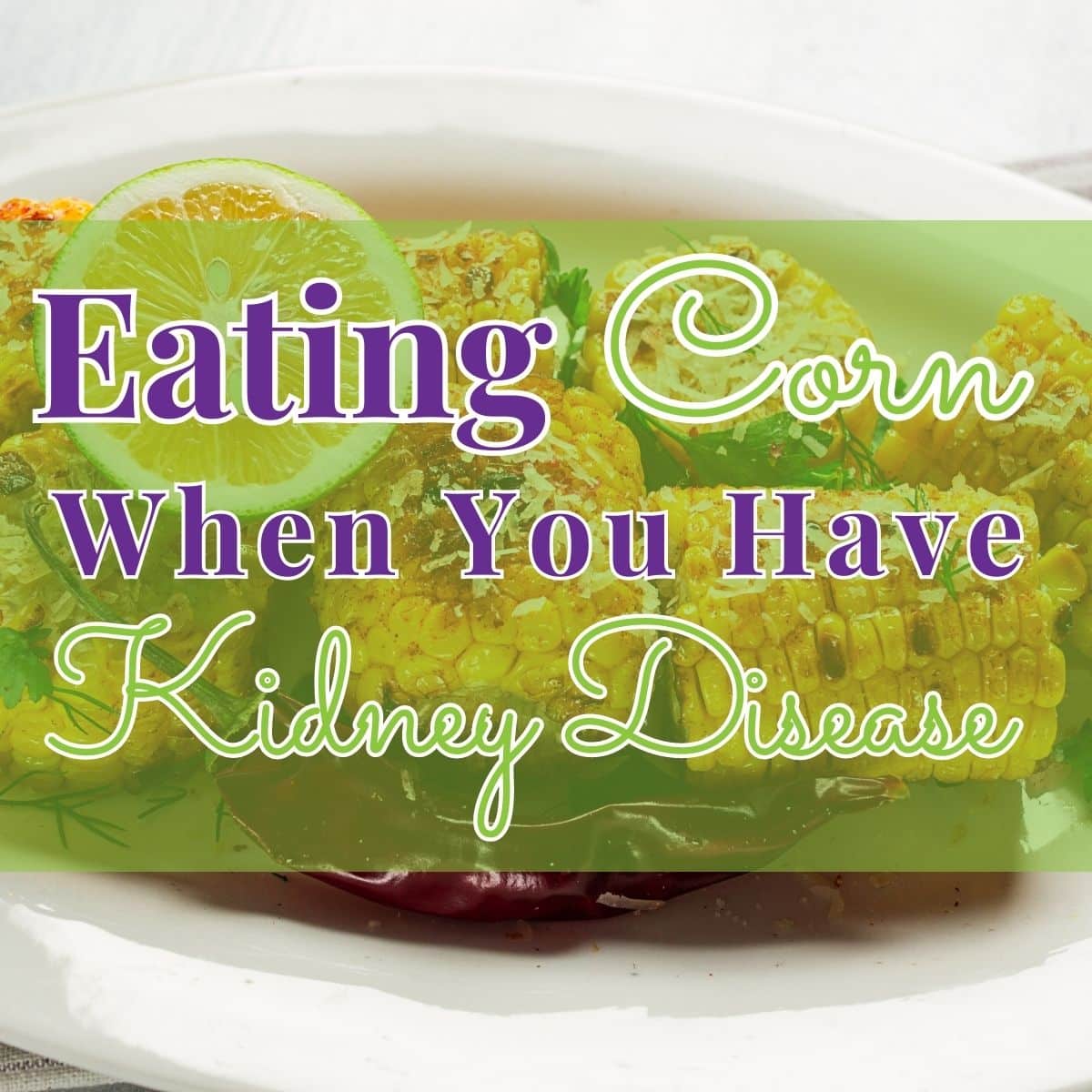
Is Corn High In Phosphorus?
When considering eating corn when you have kidney disease, it's important to understand the effects of phosphorus in corn.
Phosphorus is an essential mineral that helps your body function properly but can be toxic for people with chronic kidney disease (CKD). The amount of phosphorus found in different types of corn varies depending on how the corn was processed and cooked.
Frozen or canned sweetcorn typically has more phosphorus than fresh sweetcorn because processing increases the level of soluble phosphates, which are more easily absorbed by the body. Popcorn also contains phosphorus due to added flavorings, oils, and butter.
Overall, understanding how much phosphorus is present in various forms of corn is important when making dietary choices if you have CKD and are trying to eat low phosphorus foods.
To protect your health while still enjoying a tasty snack, choose lower-phosphorus options such as unsalted plain popcorn or freshly boiled sweetcorn. Be sure to read labels carefully, so you know exactly what ingredients are used when buying pre-packaged snacks or meals containing corn products.
Sweet Corn And Kidney Patients
Eating sweet corn when you have kidney disease can be a tricky situation. It's important for patients to understand the potential risks and benefits before consuming this delicious vegetable.
The Potential Benefits of Sweet Corn:
- Nutritional Value: Sweet corn is an excellent source of dietary fiber, B vitamins, and minerals like zinc and iron which are essential for overall health. It contains antioxidants that may help protect against certain types of cancer.
- Low Potassium Levels: Sweet corn has relatively low levels of potassium compared to other vegetables. This makes it a good choice for those with chronic kidney disease looking to maintain a healthy electrolyte balance. Here are some tips for a low potassium diet.
- High-Calorie Content: For people who struggle to get enough calories due to decreased appetite caused by their condition, eating sweet corn can provide much-needed energy and nutrition.
Potential Risks Associated With Sweet Corn Consumption:
- Phosphorus Intake: Eating too much sweet corn could increase phosphorus intake beyond recommended levels, as phosphorus is naturally found in many foods including this type of corn. High phosphorus levels can lead to serious complications such as bone loss or calcification of organs if left unmanaged.
- Sugar Content: Although sweet corn does not contain added sugar, it still has high amounts of natural sugars present in the kernels which could exacerbate symptoms associated with diabetes or insulin resistance among some individuals with kidney disease. Therefore, portion size should be taken into account when deciding whether to consume this food item.
- Flavor Enhancers: If purchasing pre-packaged canned sweetcorn there may be additional ingredients included such as salt or preservatives that can negatively affect blood pressure levels and fluid retention respectively if consumed in excess quantities over time.
It’s clear then that there are definitely some benefits associated with eating sweetcorn for those living with renal issues. Careful consideration must also be given to any potential negative consequences that could arise from its consumption. Particularly when dealing with packaged goods containing flavor enhancers or added sugars. What is a kidney failure diet?
Is Corn Good For Kidney Patients?
The type of corn consumed also matters when considering whether it’s good for someone with kidney issues. Sweetcorn is generally lower in phosphorus than other types, so this may be a safer option if phosphorus needs to be restricted.
However, sweetcorn still contains significant amounts of potassium which could worsen symptoms if already elevated. It’s therefore essential that anyone making dietary changes consults their healthcare team first.
Eating corn can provide many beneficial nutrients such as Vitamin C, B vitamins, and fiber. However, those with advanced stages of chronic kidney disease must carefully consider their individual requirements before deciding how much they consume.
A registered dietitian can help create meal plans tailored specifically to address any nutrient deficiencies while providing advice on how different foods affect kidney function. There are steps to improving kidney health you can take!

Hominy And Kidney Disease
It is commonly believed that people with kidney disease should not eat hominy, but what does the research say? The below table helps to answer this question.
Hominy is a type of food made from dried maize kernels that have been soaked in an alkaline solution such as lye or lime. This process, known as nixtamalization, softens the kernel, removes its outer hull, and increases its nutritional value.
The resulting product is then dried, ground into a coarse meal, or boiled and eaten whole. Hominy can be used as a base for soups and stews, as a side dish, or as an ingredient in dishes such as grits and polenta. It is also a popular ingredient in many Latin American dishes.
Hominy can be a beneficial addition to a person’s diet when they have kidney disease if prepared correctly. It is low in sodium and potassium compared to other grains, which are two of the primary minerals restricted on a low sodium kidney diet.
However, it has high levels of phosphorus, which can cause complications for those with pre-existing kidney issues, so must be consumed in moderation.
In light of this information, it appears that hominy could potentially be incorporated into an individual's diet who suffers from kidney disease, depending on their health status. However, caution should be taken considering its mineral composition. As always, it is important to speak with your doctor before making any dietary changes.
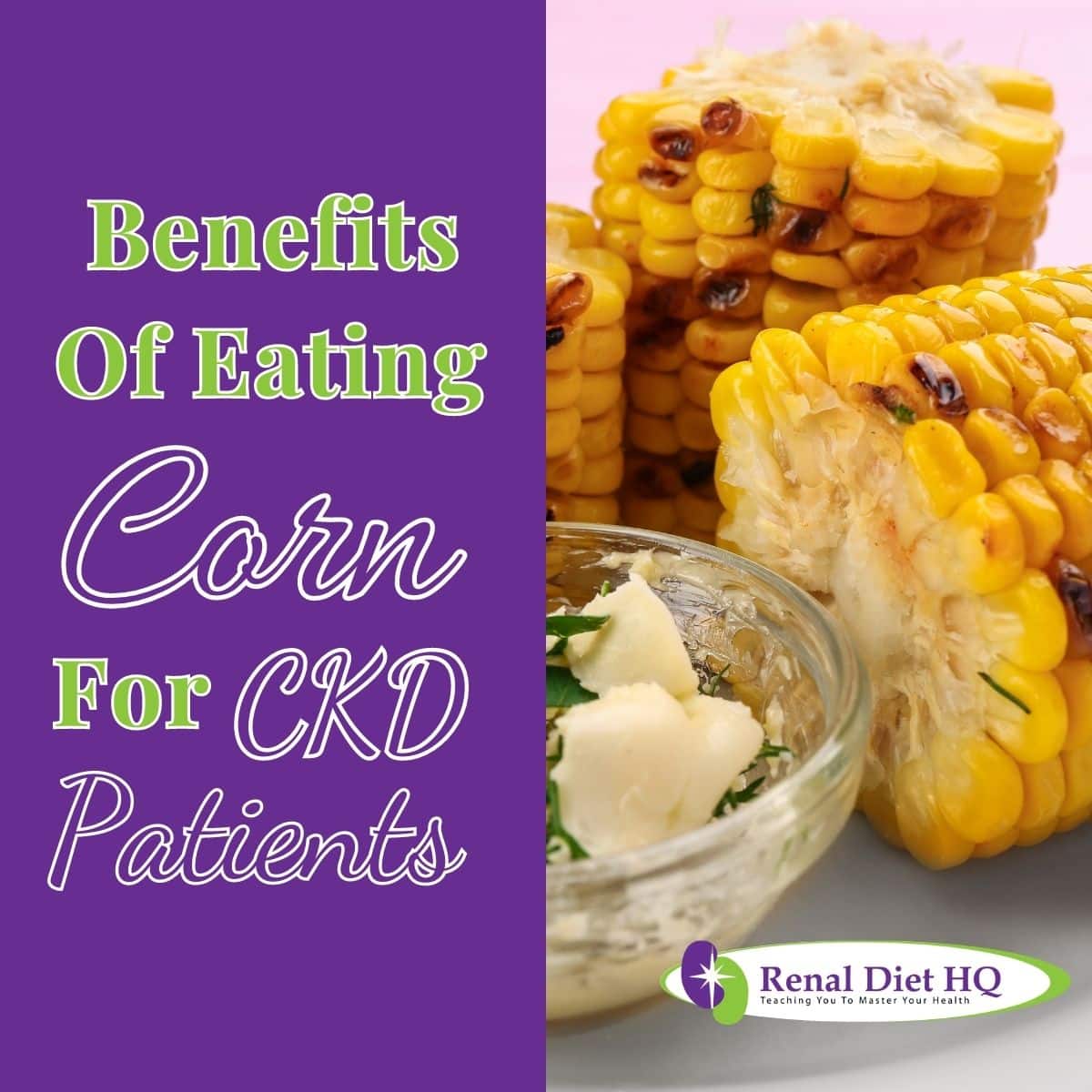
Benefits Of Eating Corn For CKD Patients
Despite the challenges that come with following a renal diet, it is important to consider the benefits of eating corn for CKD patients. Though hominy may not be suitable due to its high phosphorus content, regular corn can still offer many health advantages. Is corn good for CKD patients? Absolutely!
Corn is an excellent source of dietary fiber and essential vitamins and minerals like vitamin A, B6, thiamine, niacin, and folate. It’s also low in sodium and fat, making it the perfect snack choice or addition to any meal.
The soluble fibers found in corn can help lower cholesterol levels while insoluble fiber helps keep digestion running smoothly. On top of this, antioxidants present in all types of corn help reduce inflammation throughout your body.
This is something particularly beneficial for those with kidney disease as chronic inflammation is associated with a higher risk of developing further complications. Eating plenty of fresh vegetables such as sweetcorn alongside other protein sources on a renal diet will ensure you get enough nutrients without putting too much strain on your kidneys.
So if you are looking for healthy snacks or meals that won't overburden your kidneys but don't want to miss out on enjoying delicious foods – adding some fresh corn into your renal diet could be just what you need!
With its impressive nutritional profile and abundance of vitamins and minerals needed by anyone who follows a specialized diet plan like a kidney-friendly one, incorporating this veggie into meals will provide numerous long-term health benefits even when living with CKD. Keep in mind that there is a different food for your stage of chronic kidney disease!
Considerations When Eating Corn With Kidney Disease
Eating corn when you have kidney disease can be a tricky situation. It is important to consider the nutrients and vitamins that are found in corn, as well as how your body will process them, before eating it. As the saying goes: ‘You are what you eat!’
Corn contains many beneficial minerals and vitamins like magnesium, phosphorus, iron, vitamin C, thiamin B1, and folate. However, if you have kidney disease these essential minerals may become difficult for your body to absorb properly.
Furthermore, corn has higher levels of potassium which can further complicate matters, as people with kidney problems often need to limit their intake of this mineral. Eating other low potassium side dishes can help make the diet lower in this component as well.
It's also worth considering other types of corn such as hominy. Hominy has been shown to contain lower amounts of potassium than regular corn and so could be easier on someone who suffers from kidney issues.
Although, there is no definitive answer to whether or not it is bad for kidneys, moderated consumption appears to be safe for those with milder cases of chronic renal failure.
Therefore, it might be wise to talk over dietary options with a qualified medical professional before making any decisions about incorporating corn into your diet.
Is Corn High In Potassium?
When eating corn with kidney disease, it is important to consider the amount of potassium in each serving. Potassium is a mineral found naturally in foods and plays an important role in heart health. High levels of potassium can be toxic for people who have chronic kidney disease or other forms of kidney damage.
Here are some key points about monitoring your potassium intake when consuming corn:
- Check food labels carefully to identify how much potassium is present in pre-packaged products.
- Choose low-potassium options like white or yellow corn over higher-potassium varieties such as blue or purple corn.
- Speak with your healthcare provider or kidney doctor before adding any new foods that contain high amounts of potassium into your diet.
- Try roasting fresh ears of sweetcorn rather than boiling them, this helps retain less potassium in the cooking water.
- Limit consumption of processed snacks made from frozen, canned, or dried corn, which tends to be significantly higher in sodium and may also contain added sugars and preservatives.
It is essential to monitor your dietary intake if you have been diagnosed with chronic kidney disease, especially regarding sources of high-potassium foods like corn.
Eating a kidney friendly diet for diabetics or overall balanced diet that includes appropriate portions of healthy carbohydrates, proteins, and fats will help ensure your body gets all the nutrients it needs while preventing potential complications due to elevated levels of electrolytes like potassium in the bloodstream.
Is Corn High In Sodium?
Eating corn when you have kidney disease can be tricky. It is important to consider the sodium and potassium content of foods, as too much of either may cause health complications for those with a compromised renal system.
Something individuals with kidney disease should take into account before consuming is the guidelines and portion sizes of the foods they are eating.
The Dietary Guidelines for Americans recommends limiting your daily intake of potassium to 3,000 mg per day if you have CKD stage 4 or 5. Eating small amounts of boiled or steamed corn in moderation could fit within this guideline but keep in mind that other sources should not exceed recommended limits accordingly.
Overall, considering your individual dietary needs is key when deciding whether and how often to eat corn while managing kidney disease. Speak to your doctor about what would work best for you and stick to their advice closely.
Monitoring sodium and potassium intakes along with keeping an eye on creatinine levels will help ensure optimal outcomes during treatment! Make sure you check out these low sodium potluck dishes.
Dietary Fiber Intake And Eating Corn With Kidney Disease
Eating corn when you have kidney disease can be a tricky subject. While it is an excellent source of dietary fiber, and fiber helps to control high cholesterol levels, eating too much corn can lead to excess calories and excess weight over time. Eating different types of kidney friendly snacks is a good way to get a variety or different foods and improve the overall content of your diet.
Sweet corn and hominy are both excellent sources of dietary fiber for people with chronic kidney disease (CKD). Eating foods that are high in dietary fiber can help improve digestive health, reduce cholesterol levels, and can also help reduce the risk of developing kidney stones.
Sweet corn contains approximately 2.4 grams of dietary fiber per cup, while hominy contains 4.1 grams of dietary fiber per cup. It is recommended that people with CKD consume at least 25-35 grams of dietary fiber per day, so eating both sweet corn and hominy can help meet this goal.
Furthermore, sweet corn and hominy are both low in phosphorus, which is beneficial for people with CKD since increased phosphorus levels can lead to further kidney damage.
How Much Carbohydrates Are In Corn?
When it comes to eating corn with kidney disease, the amount of carbohydrates you consume is an important factor. Carbohydrates are a source of energy for your body and need to be balanced in order to maintain healthy levels of potassium and phosphorus.
When dealing with kidney disease, consuming too many carbs can lead to increased levels of these minerals which can cause further damage or complications.
For this reason, people living with kidney disease should monitor their carbohydrate intake carefully when choosing foods such as corn. Corn is high in starches and thus contains more carbohydrates than other vegetables like squash or green beans.
Eating corn every day may not be feasible depending on your individual condition, but if you do decide to eat it regularly make sure that the portion size is small enough so that you don't exceed your recommended daily allowance of carbohydrates.
Consider limiting your intake of other starchy foods while making sure to get enough fiber from plant-based sources like fruits and vegetables. By doing so, you'll ensure that your overall diet remains within recommended guidelines for those living with kidney disease. This is even more important if you are following a diabetic diet renal meal plan.
Frequently Asked Questions
If you have kidney disease, it's important to think about how often you should eat corn. Eating too much of this delicious vegetable can put an extra strain on your kidneys and make them work harder than they need to.
It is essential that you follow the advice of a healthcare professional before adding anything new to your diet. When it comes to eating corn if you have kidney disease, moderation is key.
You don't want to over-consume as this can be detrimental to your overall health. Talk with your dietitian about what amount of corn would be safe for you to consume regularly.
Your doctor might even advise avoiding certain types or varieties altogether depending on the severity of your condition. Look at different fresh or canned vegetables for a renal diet to get a variety of options.
They could also suggest alternate sources for nutrition such as other vegetables or legumes, which may provide similar nutritional benefits but without the added stress on the kidneys from consuming large amounts of corn.
If you have kidney disease and are wondering if canned foods are better than fresh, you're in the right place. Understanding what type of food to eat when living with a chronic illness can be difficult, but it's important for maintaining your overall health.
When it comes to choosing between canned and fresh, there are advantages and disadvantages to both options. Canned corn requires significantly less preparation time as compared to buying fresh kernels from the grocery store or farmer’s market.
However, because canned vegetables often contain added salt or preservatives, this could lead to an overload of sodium for someone suffering from kidney disease. Following a low sodium renal diet means you might need to search for low salt canned foods.
On the other hand, fresh corn is free of any additives and has more nutrients that may help support healthy kidneys. However, depending on where you live, they might not be easily accessible year-round.
Eating corn can be beneficial when you have kidney disease, but it's important to make sure you're getting the most out of your food. There are some simple steps that you can take to ensure that you're getting all the nutritional benefits without risking any potential harm.
First off, it's essential to consult with a doctor or nutritionist if you have any doubts regarding eating certain foods while living with kidney disease. They will be able to tell you which types of corn are safe and nutritious for someone in your condition.
Once you've got the go-ahead from your medical professional, there are still other things to consider before digging into a plate full of corn kernels. Avoid salted varieties and opt instead for lightly steamed ears of fresh corn. This technique preserves antioxidants, vitamins, and minerals better than traditional boiling methods.
Lastly, use spices such as chili powder, herbs like basil and oregano, garlic powder, or even Parmesan cheese on top. These ingredients offer flavor without excess sodium or unhealthy fats often found in packaged seasonings or convenience products.
You Can Eat Corn With Kidney Disease
Living with kidney disease doesn't mean you have to give up all the foods you love. Eating corn can be a part of your diet, as long as it's done in moderation and other unhealthy foods are avoided. With some simple changes, you can still enjoy this tasty vegetable while keeping your kidneys healthy.
- First off, make sure to watch how often you're eating corn if you have kidney disease.
- It shouldn't be consumed more than once or twice a week, any more than that could put too much strain on your already weakened kidneys.
- Remember that there may still be risks associated with consuming large amounts of corn even if you do have kidney disease.
- Talk to your doctor before making any drastic changes in what you eat.
In conclusion, having kidney disease doesn't mean giving up on everything delicious! Corn is an excellent source of vitamins and minerals which makes it great for those living with this condition. There are plenty of delicious dishes to check out, like summer foods to snack on with kidney disease!
Just use caution when adding it to your diet. Stick to small portions and keep track of how often you're eating it. By following these guidelines and talking to your doctor about potential risks, you'll be able to enjoy one of nature's best-tasting treats without putting too much stress on your system!


